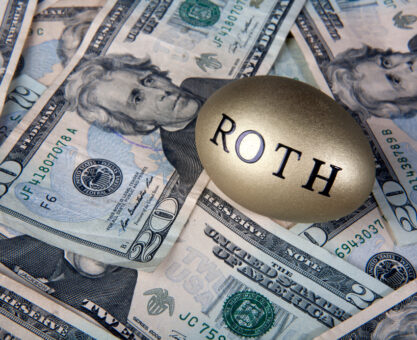Since Social Security is an important source of retirement income for FERS participants, it’s important to understand how income taxes can take a bite out of your benefit.
Let’s Start With A Little History
In 1935, when F.D.R. signed the Social Security Bill into law, benefits were not considered taxable income. However, contrary to what many believe, there was no provision in the law excluding Social Security income from taxes.
The taxation of Social Security began in 1984 following amendments signed by President Reagan. At the time, up to 50% of Social Security benefits could be taxable if a retiree’s combined income exceeded thresholds established by the IRS. In 1993, new legislation set a second taxable threshold of 85% for those earning a higher combined income. Originally, the combined income thresholds were intended to affect high earners but that’s not the case anymore.
Combined Income Thresholds Have Never Been Adjusted For Inflation
The federal government regularly makes adjustments for inflation on income tax brackets; contribution limits for the TSP and 401(k)s; plus adjustments for inflation on Social Security and FERS benefits. But the thresholds determining the taxation of Social Security benefits have never been adjusted for inflation.
As a result, more and more middle income retirees find themselves owing income taxes on their Social Security. Currently it’s estimated that 50% of those receiving Social Security pay taxes on a portion of their benefits and that number rises with each passing year.
“Putting a tax plan in place before you retire helps to protect the benefits you’ve worked hard to earn.”
How Your Combined Income Is Calculated
Combined income is calculated using your adjusted gross income plus tax-free interest and 50% of your Social Security benefits. If your combined income is $25,000 to $34,000 (single) or $32,000 to $44,000 (couple), up to 50% of your benefits may be taxed. If your combined income is above $34,000 (single) or $44,000 (couple), up to 85% of benefits may be taxed. With thresholds this low, you’ll likely owe taxes on your Social Security.
The Importance Of Tax Planning Before You Retire
In addition to owing taxes on Social Security, as much 90% to 98% of your FERS pension is taxable. Don’t forget that 100% of distributions from your traditional TSP is also taxable. If you or your spouse receive income from a private-sector retirement plan, Uncle Sam will want his cut from those distributions, too.
Putting a tax plan in place before you retire helps to protect the benefits you’ve worked hard to earn. Consider working with an FRC® trained advisor who can connect you with a reliable tax professional who understands your benefits.
Source: https://www.ssa.gov/benefits/retirement/planner/taxes.html


























